Our primary objective is to equip students with ICT skills that are highly sought after in the job market, addressing a pervasive challenge across Europe. To accomplish this, our consortium comprises partners from diverse countries, encompassing both academic and private sectors. All partners have a clear understanding of the current skills gap and they bring in their individual expertise in ICT skills and their practical applications. The consortium features complementary expertise on Complex Systems, Statistics, Data Analytics, Machine Learning, pedagogy, instructional design, a combination of academia-industry perspectives, and a trans-disciplinary approach, all of which are required for carrying out LEAP’s objectives.
Below is a list of LEAP’s partners, along with detailed information for each:
Project partners’ information
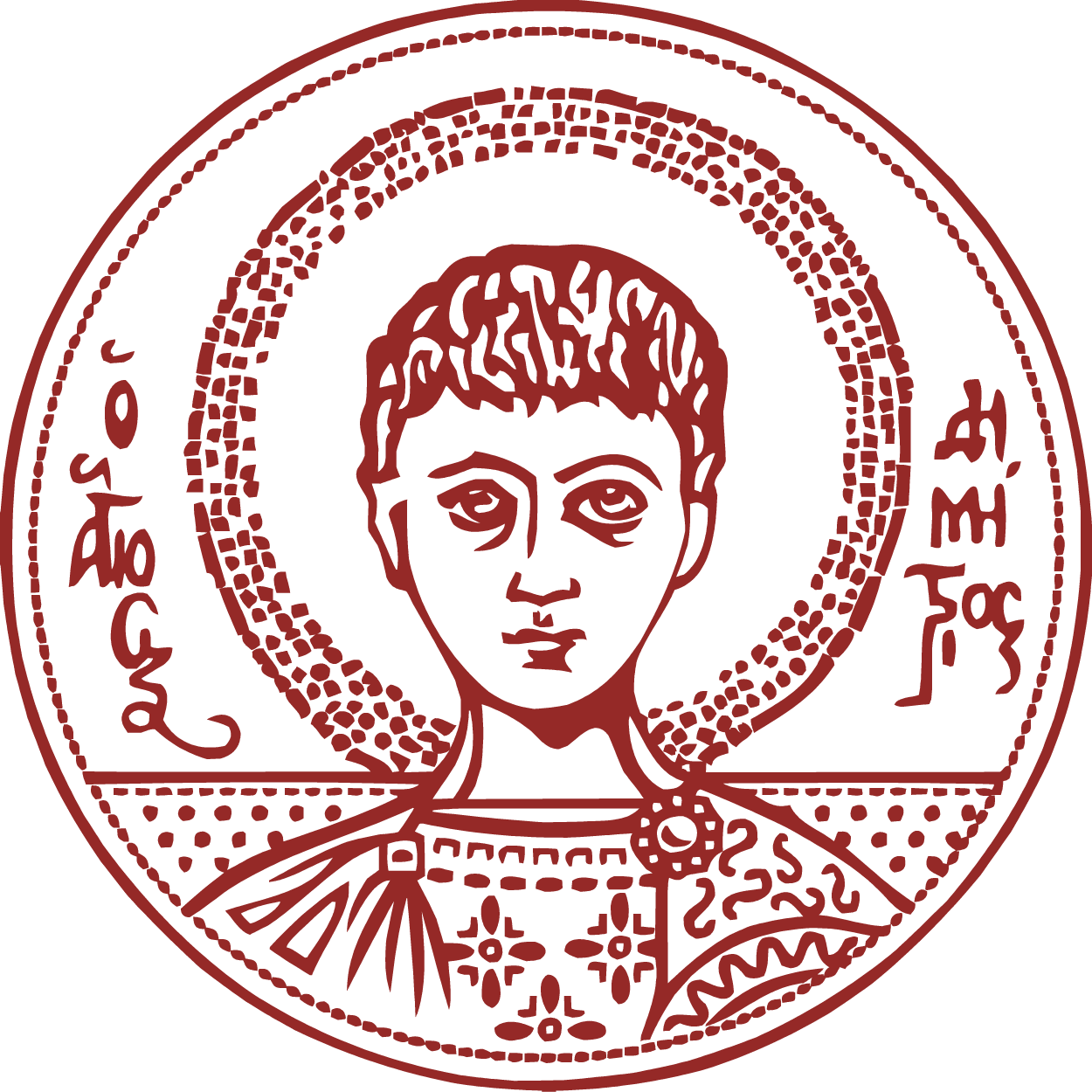
About
Aristotle University of Thessaloniki is the largest university in Greece, consisting of 10 schools, 40 departments, and 1 single-department school. It has 64 clinics and 314 statutory laboratories, as well as a large library system. The university offers 43 undergraduate and 185 postgraduate study programs, including collaborations with foreign institutions for doctoral theses. As of today, it has 90,299 students, including 8,500 post-graduates and 4,609 PhD candidates, and employs over 2,000 permanent teaching staff members. KEDIVIM-AUTH (www.diaviou.auth.gr), a Foundation unit, is responsible for coordinating and promoting interdisciplinary cooperation in the creation of educational programs, including training, ongoing education, and lifelong learning initiatives.
The Career Services Office (CSO) of Aristotle University of Thessaloniki was established to assist students and graduates in finding jobs that match their skills, qualifications and experience. They offer information on various educational opportunities and job openings in the private and public sectors, as well as counseling services for job search techniques, CV compilation, reference letters, job interview skills, and career planning. The office also holds workshops and seminars on these topics. The Special Account for Research Funds (ELKE) is responsible for the financial management of all types of funds necessary for research, education, training, technological development, continuing education projects and for the provision of scientific, technological and other related services or activities that contribute to the connection of education and research with industrial production and practical applications. ELKE managed over 6,000 research projects in the last five years, collaborating with over 1,000 international partners and generating a total revenue of 281.1 million euros.
The IT Center of AUTH manages the electronic services, network and computing infrastructure of the university, and provides support to university users. Their mission is to enable the university community to make the best use of the available ICT resources. The center aims to continuously innovate and expand services to support teaching, learning, research, and administrative needs while maintaining a secure and reliable infrastructure. The personnel of the IT Center consist mostly of IT, electrical, computer and communication engineers and scientists (full-time and part-time employees) and undergraduate students (trainees or part-time employees). The Center is funded by the regular budget of the Aristotle University, the Research Committee, European Union programmes, as well as projects regarding the provision of services to third parties of the Greek academic community. Aristotle University of Thessaloniki was ranked as one of the top 200 universities in “Computer Science and Information Systems” by the QS company.
The Laboratory of Science Education and Educational Technology of the Department of Physics (DiPhET), aims to the application of best practices according to the state of the art in the subjects in Teaching and Learning Physics and Educational Technology, contribute to them through research and their utilization for the benefit of the students of the department (at undergraduate and postgraduate level) and for the professional development of in-service educators. The DiPhET Lab activities consist in the design/applying/evaluating Teaching & Learning Sequences, in various topics of Physics, in order to promote 21st century skills to students. The Lab has a long experience in topics like Inquiry-based Learning, Project-based Learning, STE(A)M, Computer-based experimentation (Simulations, Virtual Labs, Real Labs with sensors, Remote Labs) and have recently moved into mobile-Learning.
People
In the framework of this proposal, the Department of Physics has valuable expertise and an important contribution in the field of Science Education. It offers 4 relevant courses at undergraduate level and hosts a program of post-graduate studies in the field of Didactics of Physics and Educational Technology.
Panos Argyrakis, PhD from the University of Michigan, USA, Professor of Physics at the University of Thessaloniki, Greece (since 1985). His interests are in Computational Physics and Condensed Matter Physics, Large-scale Monte-Carlo computer simulation techniques, Student Laboratory experiments in Physics and Chemistry by computer simulation methods, Grid Computing and Parallel Computing, Smart algorithms for the solution of Complex problems, Networks, Structure and Dynamics of networked systems, Spreading phenomena on networks, Scale-free networks, Random networks, Social and economic networks, Properties of networked entities, Graph theory, Game Theory. Author of over ~300 published works in international journals, books, conference proceedings, etc., with about ~200 citations/year. h-factor ~40. Reviewer in over 40 different scientific journals on a regular basis. Expert evaluator in several different EC Framework Programs of the European Commission, ESF, COST, NATO, ESA. Evaluator in National projects in Greece, Belgium, the UK, Czechia. Representative of Greece in several EC Committees. Has carried out over 60 funded projects by EC and Greek national agencies.
Euripides Hatzikraniotis is a Professor at AUTH, Head of DiPhET Lab and Director of the Masters of Science Program on “Didactics of Physics & Educational Technology”. His domain of expertise is in the field of design, development, implementation and evaluation of innovative Teaching Learning Sequences using various facets of ICT and didactical approaches like Inquiry-based Learning, Project-based Learning, STE(A)M, Computer-based experimentation (Simulations,Virtual Labs, Real Labs with sensors, Remote Labs) and mobile-Learning.
Dr Maria Tsouchnika is a physisist with a PhD in Computational Physics and a data enthusiast. Her main interests are Complex Systems and Social Network Analysis, Data Analytics, Machine Learning and programming. She is proficient in programming languages such as Java, C++, Python and R.
Michael Kanetidis is a PhD candidate in Physics and holds an M.Sc. in Computational Physics. He has a strong background in AI, Machine Learning, Data Analytics, Big Data, and programming. He is proficient in programming languages such as C/C++, Java, Python, and R.
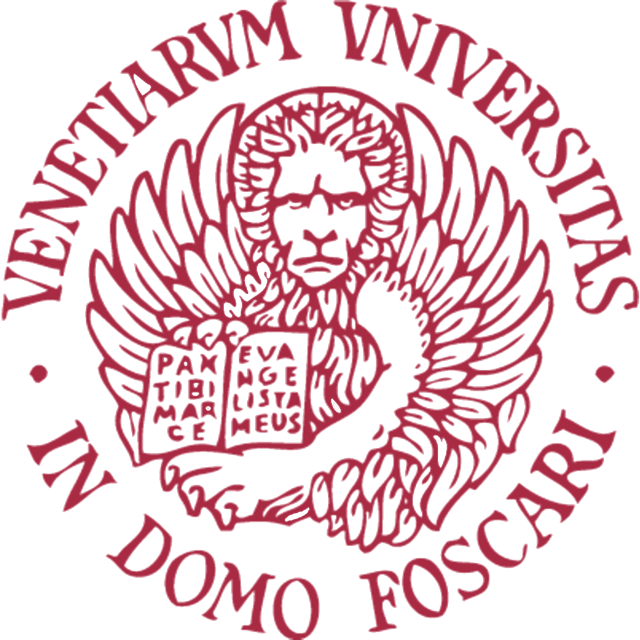
About
Founded in 1868, Università Ca’ Foscari Venezia (UNIVE) is a leading university in Italy in Economics and Management, Humanities, Languages and Literature, Science. With more than 22,000 students and nearly 1,400 staff, UNIVE is organised into 8 Departments, 3 Schools and an International College, committed to developing the next generation of researchers, scientists and academics through collaboration across disciplines, advanced research projects and innovative study programs. Thanks to a strong internationalization policy, Ca’ Foscari courses (17 bachelor’s degree programmes, 29 master’s degree programmes, 16 PhD programmes and 32 Professional Master’s Programmes), together with a wide portfolio of international programmes, both in Italian and in English, attract an ever-increasing number of talented foreign students. Students are supported before, during and after their study period at Ca’ Foscari by an experienced administrative multi-language organization which is specifically designed to meet the whole educational and logistical needs of the students and the faculty staff. A whole series of facilities is available: Italian language courses, housing facilities, guidance services and welcoming activities.
The University has an outstanding national and international reputation for academic excellence in the fields of teaching and research. In 2021, it was rated 107° among the top universities for Arts and Humanities, History, 59° for Modern Languages, and among the 250 top universities for Economics, Econometrics, Linguistics, in the QS World University Ranking by Subject. Ca’ Foscari has signed hundreds of international cooperation agreements with universities from all over the world, in order to promote mobility, training and research. UNIVE attracts funding from regional, national and international programmes. It has a long-standing tradition in research and well-established experience in EU funded projects for education, training and research (282 projects awarded since 2014, of which 187 within the Horizon 2020 Framework Programme. Furthermore, many grants have been obtained within Erasmus+ programme, REC-programme, EU DGs grants, Territorial Cooperation Programmes, Life, Creative Europe, EuropeAid, with Ca’ Foscari participating as Lead Partner or Partner) for a total of 75M€ awards (more than 60M€ in Horizon 2020 funding). It is a top Host Institution with more than 120 Marie Skłodowska Curie Individual Fellowship awarded, a Cofund Fellowship programme, 18 ERC grantees and an active and continuous participation in competitive research and collaborative programmes.
Ca’ Foscari have joined EUTOPIA European University, an alliance of 10 universities who obtained funding through the European Universities Initiative and share a vision to build the universities of the future. The University participation in European and International calls has been enhanced also through six Interdisciplinary Research Institutes established within the ‘Research for Global Challenges’ initiative that aims at encouraging international partnerships and fostering the most promising interdisciplinary collaborative research project. The six Research Institutes bring together research strengths from across the University and from its strategic partners, including local, national, and international stakeholders, to promote an interdisciplinary approach to research. They were mapped onto the UN’s 2030 Agenda for Sustainable Development and its 17 Sustainable Development Goals – SDGs.
Università Ca’ Foscari Venezia organises around 800 cultural and scientific events per year, enjoys 11 international research networks, has established 150 cooperation agreements with some of the most prestigious universities and international bodies in Europe and worldwide, develops fruitful relationship with business and productive world fostering knowledge exchange, innovation, technology transfer and entrepreneurship.
People
Guido Caldarelli is full Professor at the University of Venice, Italy, from 2020. His activities are mainly focused on scale-free networks, complex networks in theoretical models and in their application to networks, within the developments of Modern Statistical Physics and applications of those to the study of social systems, for example the structure of financial systems and the study of propagation of information disorders.
He has been coordinator of the European project COSIN, one of the first international activities based on the study of complex networks as well as coordinator of the European project FOC on the study of financial networks and the project MULTIPLEX on Multi-level Complex Networks.
All this activity contributed to the creation of a network science community in the early stage of this discipline. He has published numerous papers in physics and interdisciplinary journals, including Physical Review Letters and Nature. His work on beauty and the stable marriage problem has been reported in the press. He is the co-founder of the Italian Society of Statistical Physics, elected member of the American Physical Society and the Academia Europaea, and in 2021 he appeared among the top 2 percent of the world’s most influential scientists. He is author of numerous scientific articles and various volumes, all published abroad; in Italy he is author of Senza Uguali (Egea 2022) and together with Michele Catanzaro of Science of Networks (Egea 2016).
He also participates in “VIGIE: A research agenda on Digital Media and Human Well-Being” (DIGIENG) and “Humane AI (with CNR-ISC) European network of human-centered artificial intelligence” (HumaneAI).
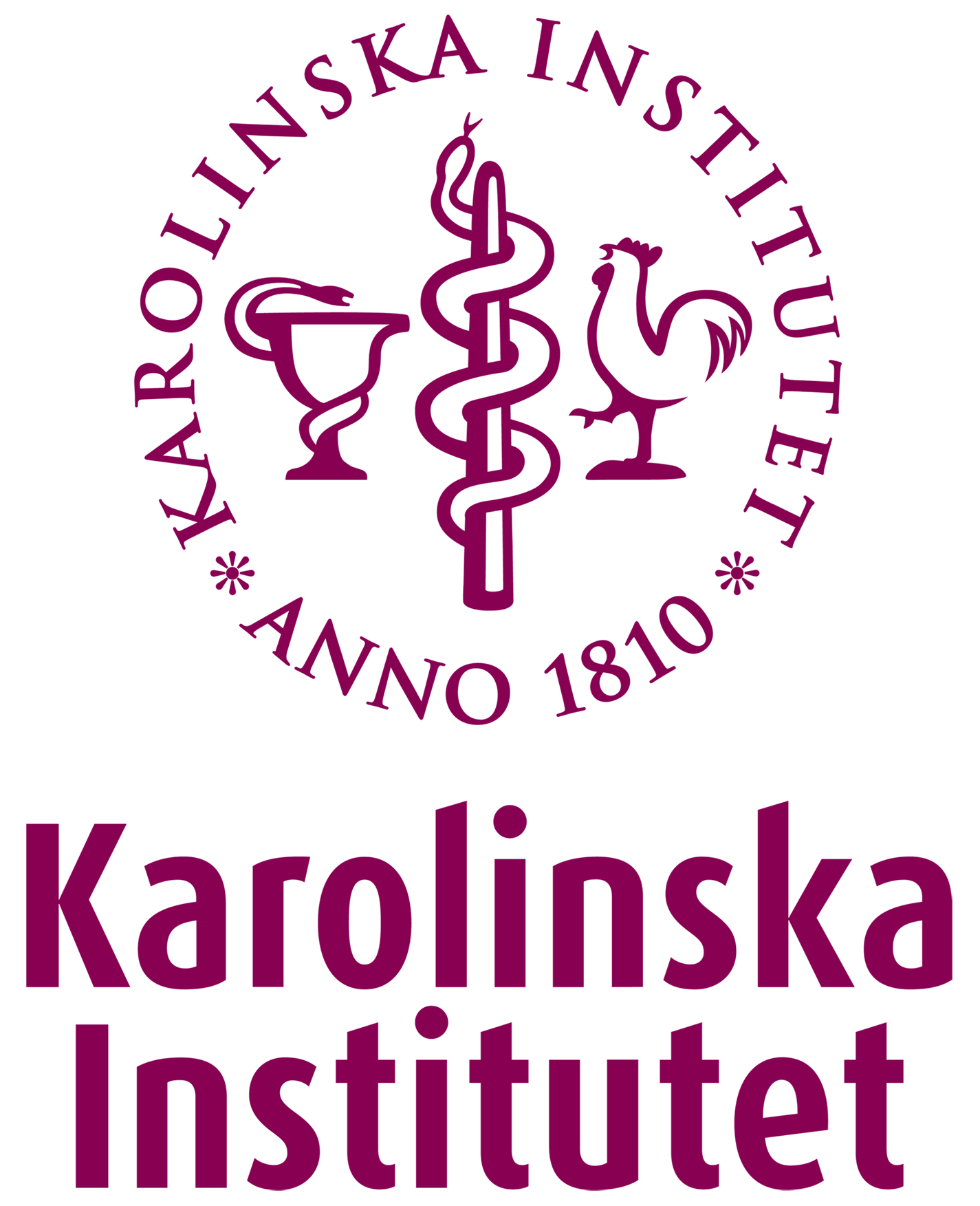
About
Karolinska Institutet (KI) is among the world’s foremost medical universities. KI’s vision is to advance knowledge about life and strive towards better health for all. As a university, KI is Sweden’s single largest centre of medical academic research and offers the country’s widest range of medical courses and programmes. Since 1901 the Nobel Assembly at KI has selected the Nobel laureates in Physiology or Medicine.
Higher education has long been divided between three different institutions of higher education with different specializations. Karolinska Institute’s focus is Medicine, Stockholm University’s focus is both natural science and Humanities, while KTH’s main focus is engineering. They are all members of The University Alliance Stockholm Trio (www.stockholmtrio.org). The three universities have been collaborating for a long time in a number of scientific fields and also offers joint educational programmes. The alliance agreement provides new conditions for in-depth collaboration. The Trio has a formal cooperation since 2019 in several areas including research, education, research infrastructure and as well in administration. Sustainability and in particular in climate and global health are strong priorities. The Universities complement each other rather than compete, as they together cover all academic disciplines. Many students study courses at several of the universities. Our main focus is students from Karolinska Institut, however, there are possible for students from other universities to take the course as well. In 2022 there were 6,456 full-time students at KI in programmes at Bachelor’s, Master’s or PhD level and most also lead to a professional health care degree (e.g. in medicine, nursing, dentistry, psychology, nutrition, laboratory sciences etc). KI offers several international one- and two-year Master’s programmes, e.g. Bioentrepreneurship, Health Informatics and Global Health.
Most programmes at KI have established international student and teacher exchange networks. In 2019, 2,043 individuals were active doctoral students (PhD candidates), a large proportion with international backgrounds, benefitting from collaborations between KI and universities abroad. Research spans the entire medical field, from basic experimental research to patient-oriented and public health research. Each year, KI researchers publish over 6000 scientific articles, many in leading medical journals. KI has 328 professors of which 33% are women. KI counts 7 Nobel laureates among its faculty and alumni. According to both Times Higher Education and QS World University Rankings, KI is ranked as one of the Top 10 medical universities in the world.
People
KI’s participation in the project will be managed by the Global and Sexual Health research group (GloSH research group) the group was started by the internationally recognized professor and entrepeneur Hans Rosling and is today led by professor Anna Mia Ekström.
The Glosh group has extensive experience in developing and designing ICTs for collecting and visualizing data. Gapminder was founded in Stockholm on 25 February 2005 by Ola Rosling, Anna Rosling Rönnlund, and Professor Hans Rosling. In 2006, Hans Rosling gave his first TED talk, called, “The best statistics you’ve ever seen”. It became one of the most watched TED talks ever. Since its founding, Gapminder has developed several innovative data visualizations. The bubble chart software Trendalyzer was acquired by Google in 2007 and Gapminder’s team moved to Google’s headquarters in California. Whilst there, the team integrated Trendalyzer into Google’s infrastructure, and also improved Google’s search to show better results for global statistics from big data providers.
The main applicant from the Glosh Group, Professor Fredrik Liljeros was member of the team that was first to develop software that makes it possible to conduct Respondent Driven Sampling, a data collecting method for hidden populations, on the internet (Bengtsson et al 2012). Liljeros acted also PhD advisor for the two PhD students who was first to develop methods that make it possible to use mobile phone data to quickly identify where the need for help is greatest during natural disasters (Lu et al 2012). The students, who are still connected to the Glosh group, founded the Flowminder foundation after graduation, which today has 35 employees and a turnover of more than 4 million euros.
Fredrik Liljeros is one of the world’s leading and most cited Sociologists with a focus on complex systems. His first scientific publication was in the world’s most prestigious physics journal, Physical Review Letters and consisted of a group work started with two other students from the Santa Fe Institute’s Summer School on Complex Systems in 1999. His first publication as first author was in Nature in 2001. He has since published more than 50 articles in world-leading scientific journals, including four in PNAS.
Fredrik Liljeros has extensive experience in developing models to analyse complex systems for both private and public clients and co-founded the company Dolores Group in 2020 with which he develops models to predict future market development for companies. Fredrik Liljeros has a long and varied experience of teaching, developing courses as well as leading and organising teaching at undergraduate, master’s and doctoral level. In his role as Director of study, he was responsible for the introduction of goal-related grades in connection with the introduction of the ECTS grading system and was responsible for both education and quality follow-up in connection with this. Liljeros has been responsible for, or designed the following courses:
- Power and Social Stratification 6 ECTS Credits (Major revision of the content and the organization of the course)
- Quantitative Sociological Methods, 7.5 ECTS (Major revision of the content and the organization of the course)
- Bachelor thesis course in sociology, 15 ECTS (Major revision of the grades)
- Meso Sociology, 7.5 ECTS (Created and designed)
- Master/PhD level Models of Social Stability and Social Dynamics 7.5 ECTS (Created and designed the course)
- Social Networks 7.5 ECTS (Created and designed the course)
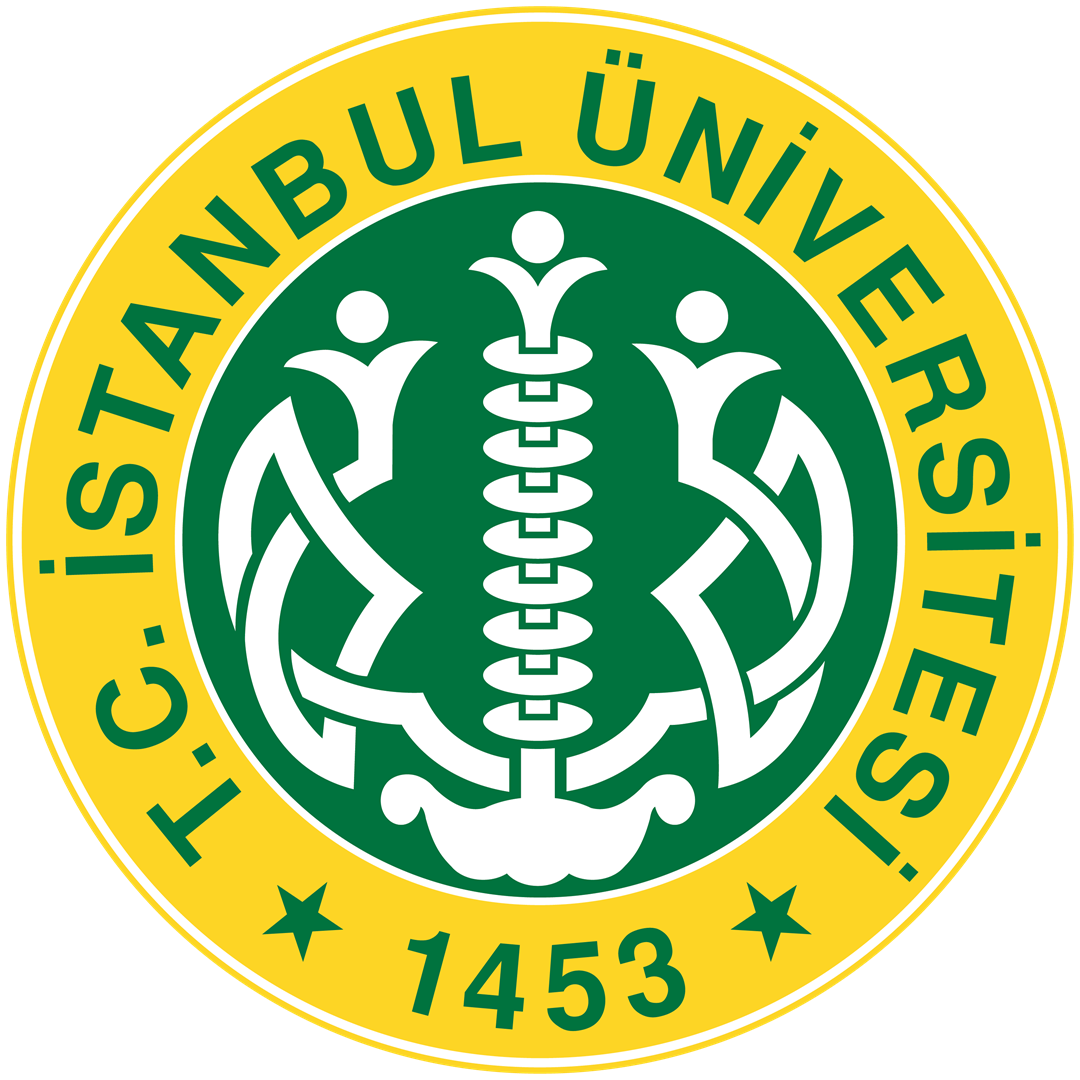
About
Founded in 1453, Istanbul University is among the first and longest-standing institutions in Turkiye. Located in various Campuses and Research Centers in and around the city, Istanbul University is a public academic institution comprising: 17 Faculties, 1 Conservatory, 2 Vocational Schools, 2 Colleges and 14 Graduate Institutes. Besides, the university is home to a total of 50.690 Undergraduate, 21.014 Graduate, 2000 International Students, 3.337 Academic and 4.184 Administrative Staff. Furthermore, Istanbul University holds one of the most renowned Medical Faculties in the country, namely Istanbul Tıp, with 3.000 medical students and approximately 1,700 medical staff including academics. This faculty operate one grand hospital and Oncology Institute and Dentistry Faculty comprising a total bed capacity of 1.500 and 1.5 million outpatients and 40,000 inpatients per annum. According to the EduRank in 2022, Istanbul University ranked among the first 500 universities making it the first Turkish University in the first 500. Istanbul University has ongoing protocols with over 50 institutions worldwide spanning from USA to Europe and Asia along with over 500 Erasmus agreements.
In 2006, the Nobel Prize for Literature was awarded to Orhan Pamuk, an Istanbul University graduate of journalism, marking an unrivalled success in the history not only of Turkish universities but also of the country. Furthermore, Aziz Sancar, an Istanbul University graduate of Medical Faculty, is a biochemist and molecular biologist specializing in DNA repair, cell cycle checkpoints, and circadian clock. In 2015, he was also awarded the Nobel Prize in Chemistry for his mechanistic studies of DNA repair.
People
G. Cigdem YALCIN is an Associate Professor in Physics at Istanbul University, Turkey. Her research group in Istanbul University has focused on complex systems and its interdisciplinary and mathematical modelling applications. These applications take into account the use of complex systems theory and its tools, to solve real-world problems which are complex systems man-made systems as well as in nature. And these real world problems reveals explainable artificial intelligence information and communication technologies are needed not only in a certain scientific experiment but also in daily life such as instant communication and smart cities.
G. Cigdem YALCIN’s group works on applications in many areas, from some specific issues to the issues we encounter in daily life, namely from cosmic rays physics to climate to power grids. Her B.S, M.S and PhD. degrees in physics, as well as her B.S degree of Business Administration and M.S degree in Education, enable her to adapt and lead her group to multidisciplinary fields and collaborations. She as a scientific coordinator of Nonlinear Science Working Group by having the longest history in Turkey since 2001 (www.non-linearscience.org), organises working group symposiums every year to provide a platform for information exchange by bringing together leading specialists working on various aspects of complexity, nonlinear science & multidisciplinary field and young scientists and students.
She is also coordinator, founder member and Turkiye representative of Asian Network of Complexity Scientists includes complexity scientists from 13 countries and regions represents a significant potential for the promotion and dissemination of complexity science among researchers and complexity science communities. On the other hand, she is an elected council member of the Complex Systems Society (2019 -2022 and 2022-2025), which aims to promote the development of all aspects of complex systems science.
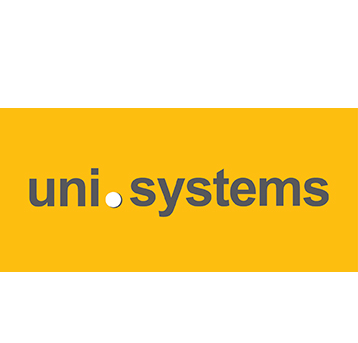
About
UniSystems was founded on 1964 and is a member of the Quest Group. It is one of the most reliable ICT solutions providers in South-East and Central Europe, with more than 1100 specialized ICT professionals, and annual turnover exceeding €154,000,000 in 2021 and subsidiaries in Belgium, Luxemburg, Romania and Cyprus. It has been a strategic partner of Financial Institutions, EU Agencies, Telecommunications Providers and Enterprises. The company is implementing and supporting large-scale, complex and mission critical ICT projects in European Organizations. Due to its true client oriented approach, commitment to excellence and its agile and efficient management style, UniSystems is positioned as a focused ICT provider to the European marketplace having already gained the respect of its partners and the trust of its Clients. The solutions and services portfolio includes: infrastructure modernization & redesign, Cloud services and supports, DevOps automation, Distributed Ledger Technologies, IT security, telecom consultancy & design, case management, human capital management, application management, critical systems custom software development, financials systems, business support.
UniSystems demonstrates financial strength and stability, innovative technological competences, strong and diverse client base, international orientation and organisational flexibility to adapt to new technologies and business needs, offering consistently and for more than 50 years best value to its customers. UniSystems is ISO 9001 Certified with respect to the design and provision of system integration services, software design, development and support, sales and support of information systems, data and voice communication networks, and data centre services. UniSystems is also ISO 27001 Certified with respect to Information Security Management for the provision of Professional Services in the technology areas of DataCom, Telecom, Access, IT, Information Security, Enterprise Management Systems, System Engineering & Consulting. Moreover, due to its continuous environmental performance improvement, the company is ISO 14001 certified and has set up an integrated and effective Environmental Management System with respect to the Design and Provision of System Integration Services, Sales and Support of Systems, Data and Voice Communication Networks, Software Design, Development and Support, Data Centre Services, Training, on the Job Training, and on the Job Support Services, Digitization, Post – Processing, and Documentation of Material Services. Furthermore, UniSystems is ISO 20000 Certified with respect to the Service Management System (SMS) that supports the Delivery of Application Management, Application Maintenance and Application Support Served. The Environmental Policy clearly states the principles of the company and allows management to communicate its objectives to the employees and other interested parties, including shareholders, customers and suppliers. In addition, UniSystems’ facilities and resources are certified to NATO/ EU Secret Level while more than half of Company’s technical resources have acquired and maintain a Security Clearance.
People
Uni Systems, an ICT company, experienced firsthand the challenge of finding qualified candidates to fill vacancies due to advanced ICT skills mismatch. To address this, they have successfully run four programming academies and are keen to participate in more learning programs to increase their candidate capacity and facilitate employee onboarding.
Oikonomopoulou Georgia is an experienced Business Analytics Consultant with 10 years of experience in Marketing Analytics and Official Statistics industry. She has an MSc in Statistics and a BSc in Mathematics with a strong background in data analytics, data science, and machine learning methodologies. She has experience in data integration, business intelligence, data governance, and master data management activities.
